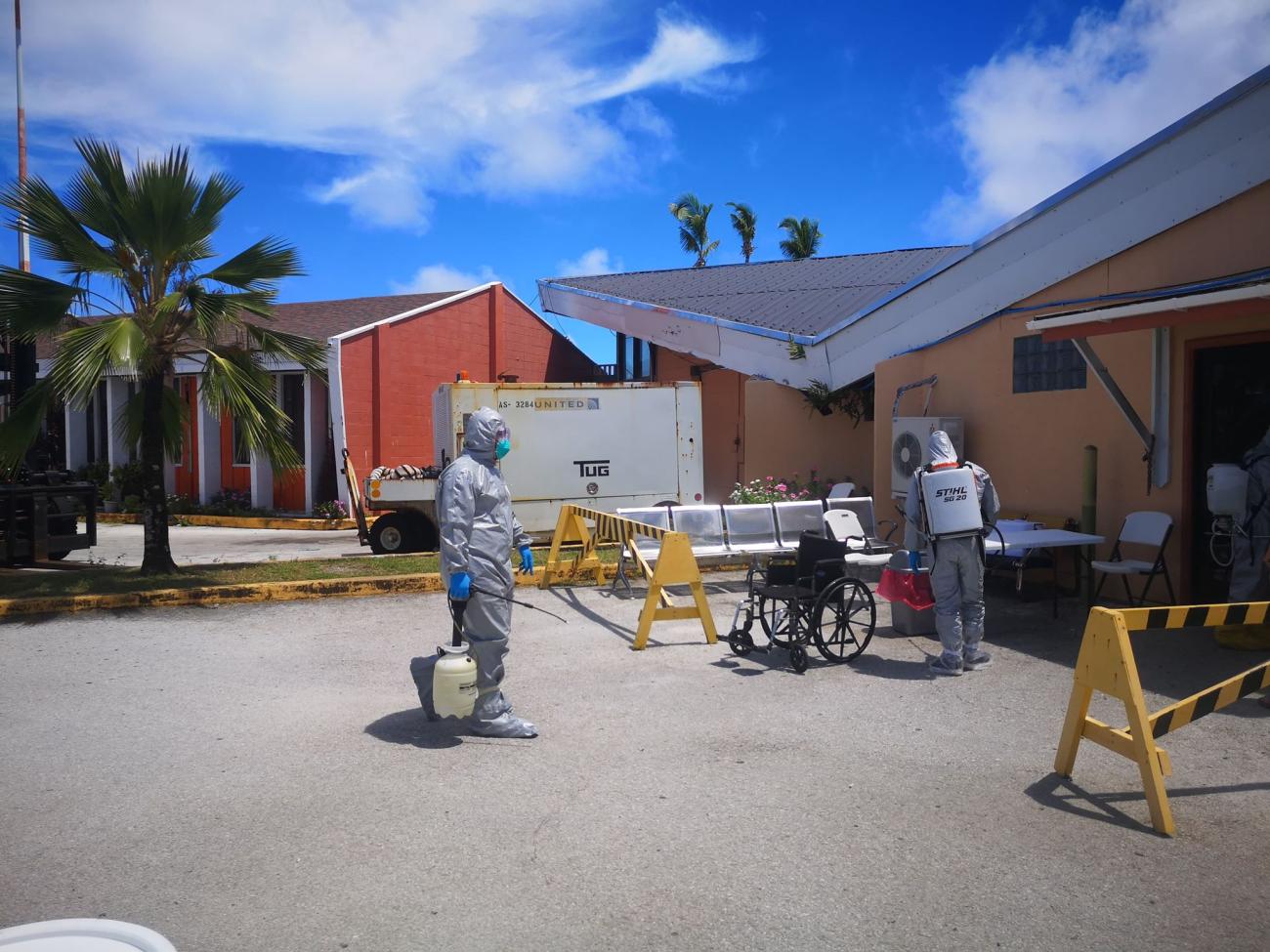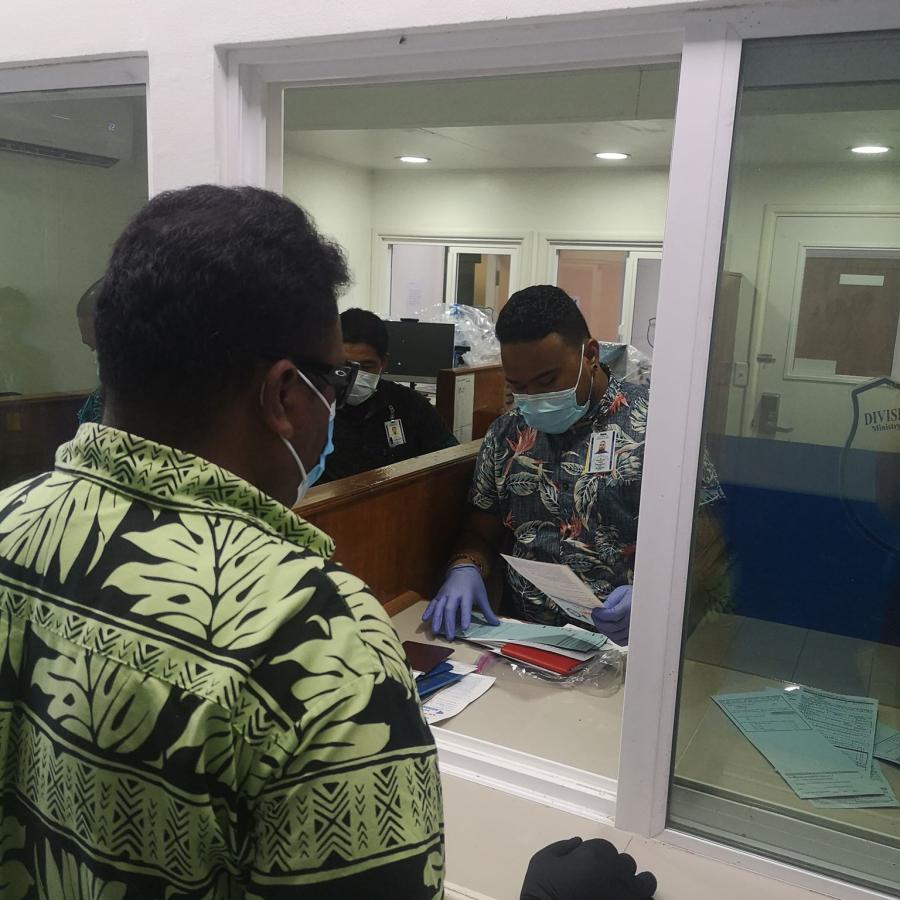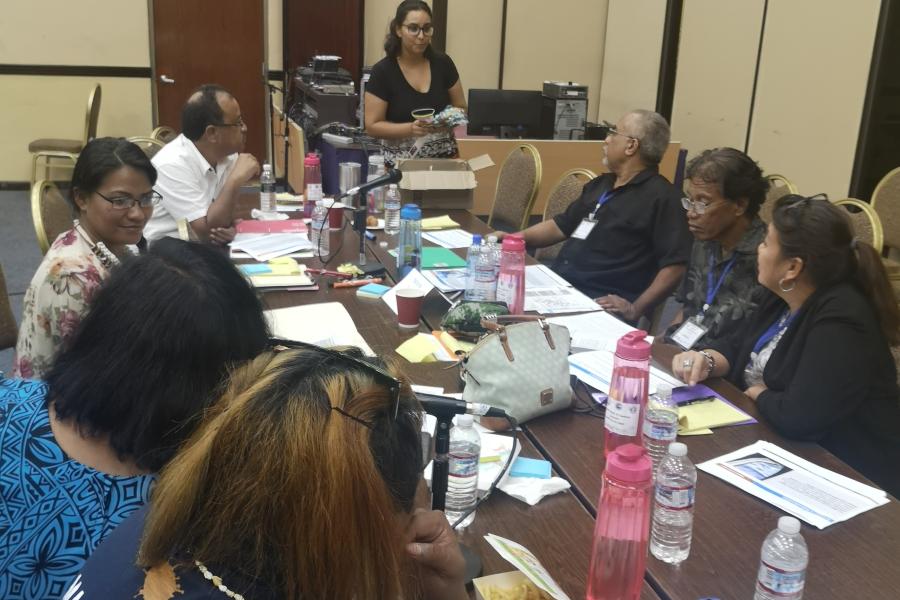Keeping COVID Out: Partnering for Preparedness in the Marshall Islands

The Republic of Marshall Islands is currently one of only 12 countries globally with no confirmed cases of COVID-19.
Nevertheless, a National State of Public Health Emergency was declared by the Government of RMI in February 2020, and a COVID-19 Pandemic Preparedness and Response Plan put in place by March.
The UN, through IOM and WHO organized, conducted and facilitated a COVID-19 Tabletop Exercise (TTX) and Simulation in the middle of August 2020. This was undertaken in close collaboration with the National Disaster Management Office (NDMO) under the Office of the Chief Secretary (OCS) and the Ministry of Health and Human Resources (MoHHS).
The TTX tested the COVID-19 preparedness and response mechanisms that have been put in place in the case of citizen repatriation. The three-day event was opened by H.E President David Kabua with dignitaries and other Nitijela Parliament members in attendance.
A total of 296 individuals attended the TTX and Simulation over the three-day period including the Health Emergency Operations Center (HEOC); the National Disaster Committee (NDC); the National Emergency Operations Center (NEOC); the Points of Entry Working Group; the Decontamination Working Group; Kwajalein Emergency Operations Center; Risk Communications and Community Engagement (RCCE) Working Group; and the National Clusters.
“the TTX and Simulation provided us a platform to strengthen internal protocols, communication, and information dissemination amongst participating offices and organizations”. Chief Secretary Kino S. Kabua.
The TTX enabled participants the chance to analyze, plan and coordinate response strategies that their respective groups would implement in the face of a COVID-19 outbreak during repatriation. Groups then drafted action plans based on gaps identified during the TTX.

Key takeaways included the need to improve internal communications and decision-making; the need for follow-on simulations and practices at targeted areas to ensure everyone who may need to be part of a repatriation is fully trained and confident in their relevant policies and procedures; ensuring basic baseline supplies and pre-positioned items are fully in place and readily available; the need for increased attention to inclusivity and gender sensitive preparations and response in Standard Operating Procedures and policies. It was also recognized that there was a need for continued outreach, inclusion and practices with other key stakeholders such as traditional leadership and the private sector.
IOM will continue to support the participants to monitor their action plans and assess preparedness for COVID-19, in coordination with the NDC.
On the third day of the exercise, a full scale six-hour simulation walked participants through a repatriation scenario – from Points of Entry to quarantine site. Updates were made in the scenario in which two of the passengers on board developed possible signs of the virus which triggered the need for testing through the RMI MoHHS hotline and contact tracing, including at a place of business.
“Overall it was a very useful exercise; the participation and turn-out was great and it showed that we are all concerned with COVID-19 and wanted to test our capabilities and systems in government. What matters next is addressing the gaps and limitations that were identified in the exercise – without delay and without fail. There is still more work to be done to prepare for COVID-19”. Chief Secretary Kabua.
IOM Head of Sub Office Angela Saunders, who was a lead facilitator for the TTX and Drill Master for the simulation stated, “The Tabletop Exercise and Simulation was a clear illustration that there is a strong desire from all those in RMI, from Government to our NGO partners, to be as prepared as possible for COVID-19”.
The UN is grateful to USAID for partial funding for the event, the evaluators from NGOs, donor partners, Embassies, US Army Garrison Kwajalein Atoll, Government and private sector for their valuable time. Additionally, IOM and WHO are thankful to Office of the Chief Secretary for the continued leadership and collaboration, as well as participants for their dedication.




